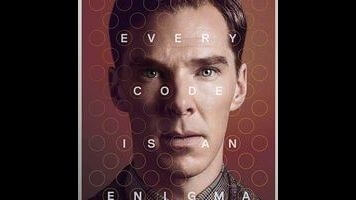Three decades ago, when playwright Hugh Whitemore decided to fashion a drama from the life of British mathematician Alan Turing, the most notable aspect of Turing’s personal life was his homosexuality. Whitemore called his play Breaking The Code, and the title’s double meaning was unmistakable: Turing had been instrumental in cracking Germany’s Enigma cipher during World War II, but he’d also violated the era’s rigid moral contract by having sex with other men. The story was a triumph that became a tragedy.
That’s equally true of The Imitation Game, which likewise focuses on Turing’s experiences at Bletchley Park during the war, leading a team that spent years struggling to decipher Enigma. These are different times, however, demanding a different emphasis. The film is comparatively matter-of-fact about Turing being gay, acknowledging that his sexual orientation ultimately led to his arrest and possible suicide, but otherwise treating it largely as a non-issue, nobody’s business. Of greater interest now, it seems, is the possibility that Turing may have had Asperger’s syndrome, or some other condition on the high-functioning end of the autism spectrum. Here, too, the title boasts a double meaning: Turing proposed an imitation game as a means of investigating the question of whether machines might one day be said to think, but it’s his efforts to mimic “normal” human behavior—to get his colleagues to like him—that’s front and center.
Certainly, one’s initial impression of Turing (Benedict Cumberbatch) is of a man blithely unconcerned with others’ opinions. Placed in charge of the Enigma project, he immediately attempts to dismiss everyone working alongside him, arrogantly insisting that they’ll only slow him down. It’s puzzle expert Joan Clarke (Keira Knightley)—the only woman around—who persuades Turing that his genius will bear no fruit unless he learns the fine art of diplomacy. Awkwardly passing apples around the office and doing his best to make small talk, he gradually earns the others’ loyalty and respect, even inspiring a mass protest when a commanding officer (Charles Dance) threatens to destroy the complicated machine Turing has designed.
The true story of how Turing and many others finally broke the Enigma code is itself so fearsomely complex that no two-hour movie could possibly do it justice. Graham Moore’s screenplay—adapted from Andrew Hodges’ non-fiction book Alan Turing: The Enigma—does an impressive job of simplifying, condensing, and distilling what actually happened into a series of accessible “eureka!” moments, and The Imitation Game is at its best when it focuses on the collision between cryptography and proto-programming. (No individual can truly be said to have invented the computer, but Turing comes close.) The film’s efforts to function as a character study, on the other hand, are decidedly clumsy, with Cumberbatch working a little too hard at making Turing a socially inept robot who learns how to pass as human. It’s a very trendy take on a legendary figure, likely to look far more dated in decades hence than Breaking The Code does now.

